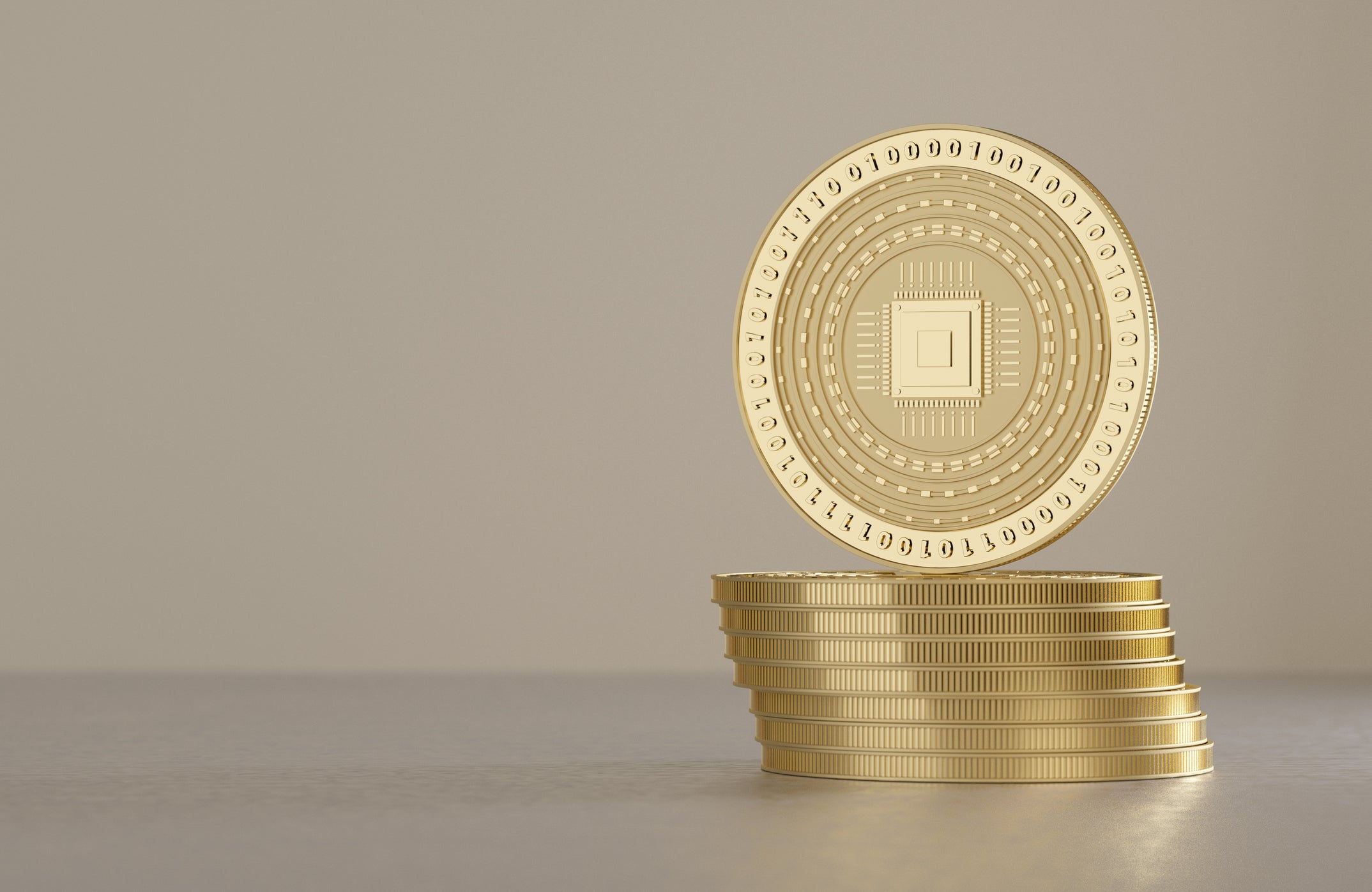Founded in 1993 by brothers Tom and David Gardner, The Motley Fool helps millions of people attain financial freedom through our website, podcasts, books, newspaper column, radio show, and premium investing services.
Founded in 1993 by brothers Tom and David Gardner, The Motley Fool helps millions of people attain financial freedom through our website, podcasts, books, newspaper column, radio show, and premium investing services.
Motley Fool Issues Rare “All In” Buy Alert
You’re reading a free article with opinions that may differ from The Motley Fool’s Premium Investing Services. Become a Motley Fool member today to get instant access to our top analyst recommendations, in-depth research, investing resources, and more. Learn More
The cryptocurrency market has been crashing after its massive run-up last year. Similar to the stock market, investor sentiment changed, and investors started to prefer stable, reliable companies over speculative investments.
Crypto is arguably the most speculative investment you could make right now, so all cryptocurrencies got crushed. Even the most notable coins like Bitcoin (CRYPTO: BTC) and Ethereum (CRYPTO: ETH) are down over 50% year-to-date.
Now, MercadoLibre (MELI -4.50%) — one of Latin America’s leading e-commerce and fintech companies — has built its own kind of cryptocurrency. With crypto in the dumps, could MercadoLibre’s speculative bet pay off?
Image source: Getty Images.
MercadoCoin will become a loyalty rewards program for MercadoLibre’s e-commerce users. With rising competition in the e-commerce space from companies like Sea Limited (NYSE: SE) in Latin America, MercadoLibre seems to be looking for a way to grow brand loyalty and convince consumers to keep using MercadoLibre’s e-commerce platform.
The solution: Consumers will get MercadoCoin, which can be seen as a form of cashback, for purchases made on MercadoLibre’s e-commerce platform. Then consumers can either use it to buy more products or sell it for traditional money.
An important detail about this is that consumers can only trade MercadoCoin on Mercado Pago, the company’s fintech platform. In theory, this should increase the stickiness between the two platforms and help bring consumers deeper into MercadoLibre’s entire product ecosystem.
MercadoLibre plans to roll this out to 500,000 Brazilian consumers in the initial phase of this launch. This may sound like a lot, but it is just a drop in the bucket compared to the company’s total 84 million active users as of Q2.
Even with this announcement, MercadoLibre has only minor exposure to crypto. Before this, the company’s primary exposure was that it allowed consumers to buy and sell crypto on its fintech platform. MercadoLibre did have roughly $7.8 million in Bitcoin on the balance sheet in May 2021. But even that is peanuts compared to its overall balance sheet: MercadoLibre had almost $3.9 billion in cash, restricted cash, and short-term investments, along with $456 million in long-term investments at the end of Q2 2022.
If MercadoCoin is successful, the company’s crypto vulnerability would get bigger. That said, it would have to explode in popularity to reach the scale of its main businesses. Its e-commerce platform, for example, has immense scale across Latin America: In Q2, it sold 275 million items totaling almost $8.9 billion in gross merchandise value.
Additionally, its fintech business is seeing rapid adoption and gaining additional scale. In Q2, Pago saw its total payment volume jump 84% year-over-year on an FX-neutral basis to $30.2 billion. Its active fintech users also jumped 26.5% over the same period to 38.2 million. It also wouldn’t be a shock to see the number of active users steadily rise if MercadoCoin brings more e-commerce users into the fintech ecosystem.
MercadoCoin is a feature, not necessarily a product itself. Therefore, given the scale of MercadoLibre’s other platforms and the amount of revenue the company generates from them, MercadoCoin would have to reach an impossibly high scale to have a significant impact on the business.
While this bet on crypto and building its own cryptocurrency is risky, MercadoLibre is a company willing to take risks for long-term rewards. Its entire business model is built on capturing a long-term opportunity: the growing adoption of fintech and e-commerce in Latin America. Therefore, it’s no wonder the company is taking a small bet on crypto.
That said, this is still a small fish in a large pond. It’s unlikely to significantly affect MercadoLibre’s tangible business if it does crash and burn, given the size of its revenue-generating platforms. It also has the potential to increase product stickiness and help it beat some fierce competition in the space.
Additionally, shares of MercadoLibre look very appealing right now. The company trades at 5.1 times sales, and shares have traded at a lower valuation only two times in its life as a public company. With shares so cheap and its core businesses continuing to flourish, it might make sense to buy shares now.
Jamie Louko has positions in Ethereum, MercadoLibre, and Sea Limited. The Motley Fool has positions in and recommends Bitcoin, Ethereum, MercadoLibre, and Sea Limited. The Motley Fool has a disclosure policy.
*Average returns of all recommendations since inception. Cost basis and return based on previous market day close.
Market-beating stocks from our award-winning analyst team.
Calculated by average return of all stock recommendations since inception of the Stock Advisor service in February of 2002. Returns as of 08/26/2022.
Discounted offers are only available to new members. Stock Advisor list price is $199 per year.
Calculated by Time-Weighted Return since 2002. Volatility profiles based on trailing-three-year calculations of the standard deviation of service investment returns.
Invest better with The Motley Fool. Get stock recommendations, portfolio guidance, and more from The Motley Fool’s premium services.
Making the world smarter, happier, and richer.
Market data powered by Xignite.

